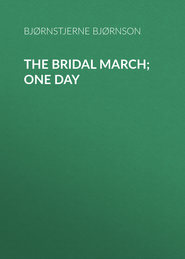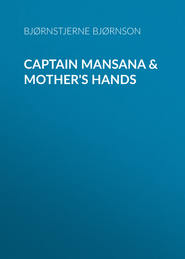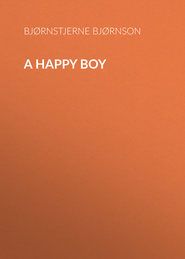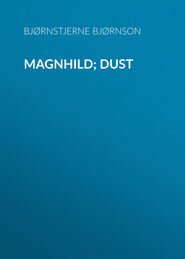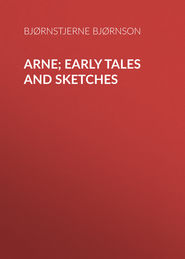По всем вопросам обращайтесь на: info@litportal.ru
(©) 2003-2024.
✖
Three Comedies
Автор
Год написания книги
2019
Настройки чтения
Размер шрифта
Высота строк
Поля
Mathilde. But I was just reading to you about that. (Reads.) "The object of fidelity changes, as we ourselves change. The child's duty is to be true to its parents; the married, to one another; the aged, to their children—"
Laura. Don't read any more! I won't hear any more! Its whole train of thought offends me. (After a pause.) What a horrid book! (Indifferently.) What happens to them in the end?
Mathilde (in the same tone). To whom?
Laura. That couple—in the book.
Mathilde (still in an indifferent tone). It doesn't end happily. (A pause.)
Laura (looking up). Which of them suffers?
Mathilde. Which do you think?
Laura (beginning to sew again). She, I should think—because she is unhappy already.
Mathilde. You have guessed right. She falls in love.
Laura (astonished). Falls in love?
Mathilde. Yes. Sometime or other, love is awakened in the heart of every woman; and then, if she cannot love her husband, in the course of time she will love some one else.
Laura (dismayed). Some one else!
Mathilde. Yes. (A pause.)
Laura. That is horrible! (Begins to sew, then lays her hand down on the table, then begins to sew again.) And what happens to him?
Mathilde. He falls ill, very ill. And then some one finds him out and comforts him—a woman.
Laura (looking up). How does that happen?
Mathilde. His heart is like an empty house, in an atmosphere of sadness and longing. Little by little she—the woman who comforts him—creeps into it; and so in time there comes the day when he can say he is happy. (A pause.)
Laura (quietly). Who is she?
Mathilde. One of those poor-spirited creatures that can be content with the aftermath of love.
Laura (after a pause, during which she has been looking fixedly at MATHILDE). Could you be that?
Mathilde. No!—I must be first or nothing!
Laura. But about her?
Mathilde. The wife?
Laura. Yes. What happens to her?
Mathilde. Directly she realises that love for another has taken possession of her husband, she turns towards him with all her heart; but it is too late then. (LAURA sits absorbed for a few moments; then gets up hurriedly and goes to a little work-table that is standing at the end of the couch on the left, opens it, looks for something in it, stops to think, then looks in it again.) What are you looking for?
Laura. A photograph.
Mathilde. Axel's?
Laura. No—but what has become of it?
Mathilde. Don't you remember that one day you took it up and said you would not have it? So I hid it.
Laura. You?
Mathilde. Yes—till you should ask about it. (Gets up, opens her work-table that stands by the right-hand couch.) Here it is. (Gives it to her.)
Laura. So you have got it! (Lays it in her table drawer without looking at it, shuts the drawer, goes a few paces away, then comes back, turns the key in the drawer and takes it out.) Has Axel read the new book?
Mathilde. I don't know. Shall I give it to him?
Laura. Just as you like. Perhaps you would like to read it aloud to him. (A Maid comes in with a letter; LAURA takes it, and the Maid goes out again.) From my parents! (Kisses the letter with emotion.) The only ones who love me! (Goes out hurriedly. At the same moment AXEL comes in from the outer door.)
Axel. She always goes when I come in!
Mathilde (getting up). This time it was an accident, though. (Looks at him.) How pale you are!
Axel (seriously). I am rather worried.—Have you read the new novel?
Mathilde (putting the book in her pocket). What novel?
Axel. "The Newly-Married Couple"—quite a small book.
Mathilde. Oh, that one—I have just been reading it.
Axel (eagerly). And Laura too? Has Laura read it?
Mathilde. She thinks it is a poor story.
Axel. It isn't that, but it is an extraordinary one. It quite startles me—it is like coming into one's own room and seeing one's self sitting there. It has caught hold of unformed thoughts that lie hidden deep in my soul.
Mathilde. Every good book does that.
Axel. Everything will happen to me just as it does in that book; the premises are all here, only I had not recognised them.
Mathilde. I have heard of very young doctors feeling the symptoms of all the diseases they read about.
Axel. Oh, but this is more than mere imagination. My temptations come bodily before me. My thoughts are the result of what happens, just as naturally as smoke is the result of fire—and these thoughts (lancing at MATHILDE) lead me far.
Mathilde. As far as I can see, the book only teaches consideration for a woman, especially if she is young.
Axel. That is true. But, look here—a young man, brought up among students, cannot possibly possess, ready-made, all this consideration that a woman's nature requires. He doesn't become a married man in one day, but by degrees. He cannot make a clean sweep of his habits and take up the silken bonds of duty, all in a moment. The inspiration of a first love gives him the capacity, but he has to learn how to use it. I never saw what I had neglected till I had frightened her away from me. But what is there that I have not done, since then, to win her? I have gone very gently to work and tried from every side to get at her—I have tempted her with gifts and with penitence—but you can see for yourself she shrinks from me more and more. My thoughts, wearied with longings and with the strain of inventing new devices, follow her, and my love for her only grows—but there are times when such thoughts are succeeded by a void so great that my whole life seems slipping away into it. It is then I need some one to cling to—. Oh, Mathilde, you have meant very much to me at times like that. (Goes up to her.)
Mathilde (getting up). Yes, all sorts of things happen in a year that one never thought of at the beginning of it.
Laura. Don't read any more! I won't hear any more! Its whole train of thought offends me. (After a pause.) What a horrid book! (Indifferently.) What happens to them in the end?
Mathilde (in the same tone). To whom?
Laura. That couple—in the book.
Mathilde (still in an indifferent tone). It doesn't end happily. (A pause.)
Laura (looking up). Which of them suffers?
Mathilde. Which do you think?
Laura (beginning to sew again). She, I should think—because she is unhappy already.
Mathilde. You have guessed right. She falls in love.
Laura (astonished). Falls in love?
Mathilde. Yes. Sometime or other, love is awakened in the heart of every woman; and then, if she cannot love her husband, in the course of time she will love some one else.
Laura (dismayed). Some one else!
Mathilde. Yes. (A pause.)
Laura. That is horrible! (Begins to sew, then lays her hand down on the table, then begins to sew again.) And what happens to him?
Mathilde. He falls ill, very ill. And then some one finds him out and comforts him—a woman.
Laura (looking up). How does that happen?
Mathilde. His heart is like an empty house, in an atmosphere of sadness and longing. Little by little she—the woman who comforts him—creeps into it; and so in time there comes the day when he can say he is happy. (A pause.)
Laura (quietly). Who is she?
Mathilde. One of those poor-spirited creatures that can be content with the aftermath of love.
Laura (after a pause, during which she has been looking fixedly at MATHILDE). Could you be that?
Mathilde. No!—I must be first or nothing!
Laura. But about her?
Mathilde. The wife?
Laura. Yes. What happens to her?
Mathilde. Directly she realises that love for another has taken possession of her husband, she turns towards him with all her heart; but it is too late then. (LAURA sits absorbed for a few moments; then gets up hurriedly and goes to a little work-table that is standing at the end of the couch on the left, opens it, looks for something in it, stops to think, then looks in it again.) What are you looking for?
Laura. A photograph.
Mathilde. Axel's?
Laura. No—but what has become of it?
Mathilde. Don't you remember that one day you took it up and said you would not have it? So I hid it.
Laura. You?
Mathilde. Yes—till you should ask about it. (Gets up, opens her work-table that stands by the right-hand couch.) Here it is. (Gives it to her.)
Laura. So you have got it! (Lays it in her table drawer without looking at it, shuts the drawer, goes a few paces away, then comes back, turns the key in the drawer and takes it out.) Has Axel read the new book?
Mathilde. I don't know. Shall I give it to him?
Laura. Just as you like. Perhaps you would like to read it aloud to him. (A Maid comes in with a letter; LAURA takes it, and the Maid goes out again.) From my parents! (Kisses the letter with emotion.) The only ones who love me! (Goes out hurriedly. At the same moment AXEL comes in from the outer door.)
Axel. She always goes when I come in!
Mathilde (getting up). This time it was an accident, though. (Looks at him.) How pale you are!
Axel (seriously). I am rather worried.—Have you read the new novel?
Mathilde (putting the book in her pocket). What novel?
Axel. "The Newly-Married Couple"—quite a small book.
Mathilde. Oh, that one—I have just been reading it.
Axel (eagerly). And Laura too? Has Laura read it?
Mathilde. She thinks it is a poor story.
Axel. It isn't that, but it is an extraordinary one. It quite startles me—it is like coming into one's own room and seeing one's self sitting there. It has caught hold of unformed thoughts that lie hidden deep in my soul.
Mathilde. Every good book does that.
Axel. Everything will happen to me just as it does in that book; the premises are all here, only I had not recognised them.
Mathilde. I have heard of very young doctors feeling the symptoms of all the diseases they read about.
Axel. Oh, but this is more than mere imagination. My temptations come bodily before me. My thoughts are the result of what happens, just as naturally as smoke is the result of fire—and these thoughts (lancing at MATHILDE) lead me far.
Mathilde. As far as I can see, the book only teaches consideration for a woman, especially if she is young.
Axel. That is true. But, look here—a young man, brought up among students, cannot possibly possess, ready-made, all this consideration that a woman's nature requires. He doesn't become a married man in one day, but by degrees. He cannot make a clean sweep of his habits and take up the silken bonds of duty, all in a moment. The inspiration of a first love gives him the capacity, but he has to learn how to use it. I never saw what I had neglected till I had frightened her away from me. But what is there that I have not done, since then, to win her? I have gone very gently to work and tried from every side to get at her—I have tempted her with gifts and with penitence—but you can see for yourself she shrinks from me more and more. My thoughts, wearied with longings and with the strain of inventing new devices, follow her, and my love for her only grows—but there are times when such thoughts are succeeded by a void so great that my whole life seems slipping away into it. It is then I need some one to cling to—. Oh, Mathilde, you have meant very much to me at times like that. (Goes up to her.)
Mathilde (getting up). Yes, all sorts of things happen in a year that one never thought of at the beginning of it.







